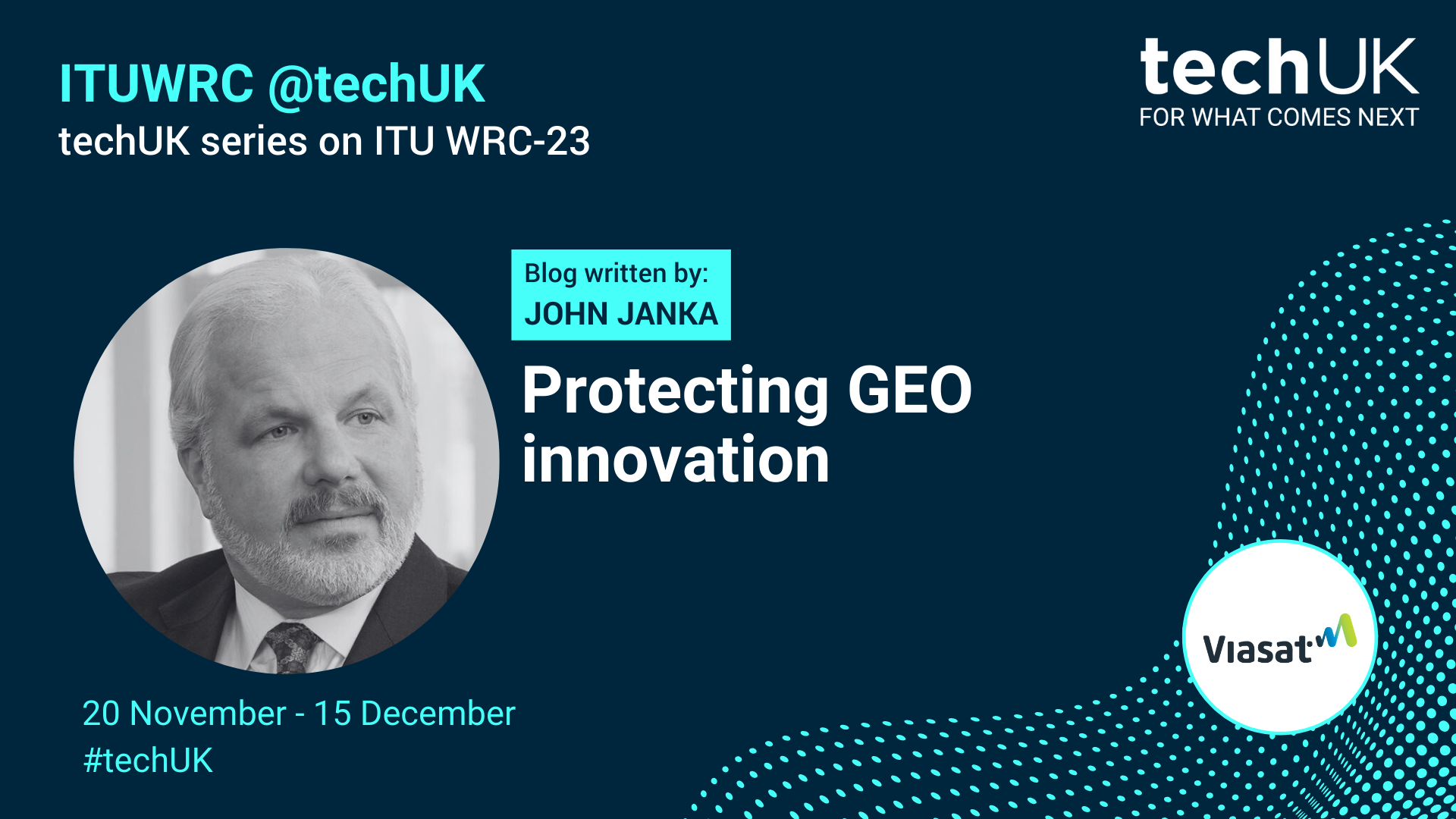WRC Series: Protecting GEO innovation

The international community has come together at the International Telecommunication Union (ITU) World Radiocommunication Conference (WRC-23) in Dubai for vital discussions around spectrum management.
One crucial issue at stake at WRC-23 is whether to change or retain the established regulation for how non-geostationary satellite operators (NGSOs) successfully share spectrum with others– known as “Article 22”. How industry leaders and governments decide this critical matter will determine whether every nation and its industries remain able to participate in the global space economy or if many countries will get squeezed out.
Changing the longstanding treaty-based framework, which has been in place for over 20 years, and has enabled a positive investment environment, could interfere with the reliable, seamless connectivity provided over critical geostationary satellite infrastructure that many countries rely on, and it also could affect the ability to introduce new NGSOs in the future.
Viasat views that many are aware of the rush to seize limited orbits and frequencies in low earth orbit (LEO). These actions can narrow the communications “lanes in space” that enable geostationary orbit (GSO) satellites to provide vital services, including internet access, broadcast television, wider communication services, support of food production, weather forecasting, environmental monitoring, defence, public safety and national security, and navigation services like Galileo. It also would widen the lanes for LEO operators.
Despite prior repeated assurances of compliance with the provisions memorialized in “Article 22”, some LEO operators seek to advance an initiative to increase by as much as 4,000% the level of interference that their LEO constellations may generate into GSO services.
As noted by the Brattle Group’s new paper in the Social Science Research Network: “Unacceptable Interference: Economic Analysis Does Not Support Degrading Protections for GSO Networks”, ITU Radio Regulation Equivalent Power Flux Density (EPFD) provisions outlined in “Article 22” have “functioned effectively for decades” and “significant value would be lost by degrading” them. To date, the technology-neutral, treaty-level provisions have enabled the successful deployment of over 5,800 low Earth orbit (LEO) satellites and about 580 GSO satellites, and they are the basis for licensing well over 37,000 LEO satellites in total. So, it strains credibility to suggest those provisions are not working well.
If successful, this initiative would degrade and disrupt GSO service, reduce GSO capacity, constrain GSO innovation, and prevent GSO operators from deploying the same types of small user terminals that LEOs already deploy today. By some accounts, GSO-based services are responsible for approximately 90% of the space-based economy. The entire world would suffer from the loss of competition and innovation.
The adverse impact on investment, competition and innovation in the space sector could not be clearer. Multiple billions of Euros have been invested in critical GSO infrastructure and in reliance on the existing “Article 22” framework. And significant investment in even more advanced technology is underway. Changing the rules for spectrum access, primarily to benefit two companies, would create needless uncertainty and risk for those projects and the entire world as well.
Fortunately, this proposal already has been rejected by 5 of the 6 regions of the world that lead the development of any changes at WRC-23. The same result is warranted for any similar proposal that would constrain the rational and equitable use of the scarce spectrum assets that must be shared under the existing ITU requirements developed by international consensus.
A better solution is already underway. With the support of the entire international community, an existing work plan at the ITU seeks to implement the “Article 22” interference limits with greater fidelity, and without changing “Article 22” itself. That approach promises to provide increased flexibility for LEO satellite operators, while still protecting GSO-based services.
It is extremely important that the world gets this right. Re-opening “Article 22” could enable significant degradation of GSO satellite services and severely impact the countless people and institutions that rely on those services every day. The time is now for all nations and industry participants to secure their place in the space economy by rejecting this proposal to rewrite “Article 22”, and instead ensuring we keep all the lanes in space open to as many actors as possible.
The outcomes from WRC-23 and prospectus for WRC-27 will be a key topic for the flagship UK SPF Future Spectrum Summit. Be part of the conversation and register here.
To find out more about our WRC 2023 Series, click here. If you would like to contribute, please reach out to [email protected].

